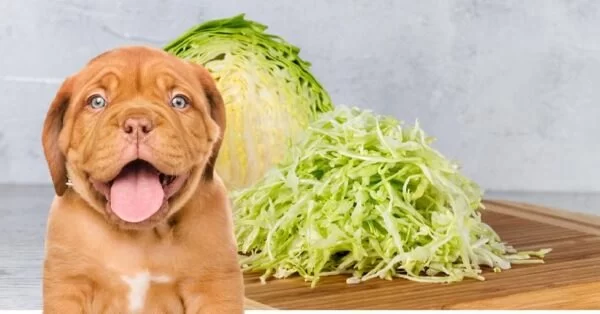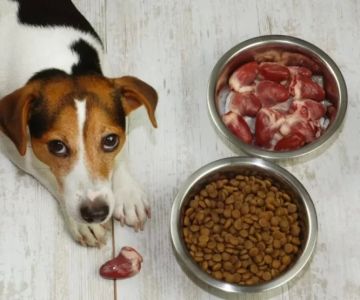- can-dogs-eat-cabbage-safely - Can Dogs Eat Cabbage Safely?
- nutritional-value-of-cabbage - Understanding the Nutritional Value of Cabbage for Dogs
- benefits-of-cabbage-for-dogs - Health Benefits of Cabbage in a Dog's Diet
- risks-and-side-effects - Potential Risks and Side Effects You Should Know
- raw-vs-cooked-cabbage - Raw or Cooked: Which Is Better for Your Dog?
- real-dog-owners-experience - Real Dog Owners' Stories: How Cabbage Affected Their Pets
- how-to-introduce-cabbage - How to Safely Introduce Cabbage into Your Dog's Diet
- where-to-get-quality-dog-products - Where to Get Expert Advice and Pet Products
1. Can Dogs Eat Cabbage Safely?
Yes, dogs can eat cabbage, and in moderation, it can be a healthy addition to their diet. But just like any new food, it needs to be introduced carefully. Cabbage contains essential nutrients and fiber, but too much of it may lead to digestive upset or gas. If you've ever asked yourself "can dogs eat cabbage?", the answer is yes—but with important caveats.

1225 Warren Ave, Downers Grove, IL 60515, USA
See Details2. Understanding the Nutritional Value of Cabbage for Dogs
2.1 Key Vitamins and Minerals
Cabbage is loaded with vitamin C, vitamin K, calcium, potassium, and antioxidants. These nutrients support your dog’s immune system, bone health, and cellular repair. In particular, vitamin K aids in blood clotting and bone metabolism, while vitamin C can reduce inflammation and improve joint health.
2.2 Low-Calorie Fiber-Rich Option
One of the major benefits of cabbage is its high fiber content paired with low calories. That makes it an excellent option for dogs that are overweight or prone to obesity. A few shredded leaves in your dog’s bowl can enhance satiety without adding unnecessary fat.
3. Health Benefits of Cabbage in a Dog's Diet
3.1 Digestive Support
When given in the right amounts, cabbage helps regulate your dog’s digestive system. The fiber promotes regular bowel movements and can even aid in cases of mild constipation.
3.2 Immune System Boost
The antioxidants in cabbage strengthen your dog’s immune defense. In seasons where colds or allergies are common, a boost in immunity is always welcome—especially in senior dogs.
3.3 Anti-Cancer Potential
Some studies suggest that the glucosinolates in cabbage may have cancer-preventive properties. While evidence in dogs is still emerging, many holistic veterinarians recommend small amounts of cruciferous vegetables for their possible long-term benefits.
4. Potential Risks and Side Effects You Should Know
4.1 Gas and Digestive Upset
Let’s be honest—cabbage can cause flatulence. Dogs are no exception. If you feed too much, your furry friend might become quite gassy or develop stomach discomfort. Start small and monitor their reaction.
4.2 Goitrogen Concerns
Cabbage contains natural compounds called goitrogens, which in excessive amounts may affect thyroid function. This is usually not a problem unless cabbage is fed daily in large quantities. Cooking the cabbage can reduce this risk significantly.
4.3 Allergic Reactions
Though rare, some dogs may be allergic to cruciferous vegetables. Symptoms like itching, swelling, or vomiting should not be ignored. Always consult a veterinarian if something seems off.
5. Raw or Cooked: Which Is Better for Your Dog?
5.1 Raw Cabbage
Raw cabbage retains the most nutrients, but it's also more likely to cause gas. If you choose this route, make sure to chop it finely and serve in moderation.
5.2 Cooked Cabbage
Lightly steamed or boiled cabbage is generally safer and easier for dogs to digest. Avoid adding salt, onions, or garlic, which are toxic to dogs. A plain, gently cooked version is ideal.
6. Real Dog Owners' Stories: How Cabbage Affected Their Pets
Emma, a dog owner from Vermont, shared on a pet forum how her Labrador’s chronic constipation improved after she started mixing a small amount of cooked cabbage into his meals twice a week. “He loves it, and I’ve noticed fewer stomach issues,” she noted.
On the other hand, Jake from Florida discovered the hard way that too much raw cabbage turned his bulldog’s belly into a bubble machine. “We had to crack windows open—it was that bad,” he joked. Moderation and preparation really do matter.
7. How to Safely Introduce Cabbage into Your Dog's Diet
Begin with a teaspoon of cooked, unseasoned cabbage mixed into your dog’s food. Monitor their response over the next 24 hours. If all goes well, you can gradually increase the quantity, but never let it make up more than 10% of their meal.
Veterinarians recommend rotating vegetables to keep your dog’s diet balanced. Cabbage should be just one of several fresh additions, along with carrots, green beans, or pumpkin.
8. Where to Get Expert Advice and Pet Products
When in doubt about your pet’s nutrition, consult with a trusted veterinarian. At Hidden Brook Veterinary, we specialize in personalized dietary plans that suit your dog’s breed, age, and health status. Whether you’re looking for the best supplements, digestive aids, or premium dog food with vegetable inclusions, we can help you find exactly what your pup needs.
Your dog’s health is worth every thoughtful choice. From nutrition to lifestyle, start with smart decisions—like understanding if dogs can eat cabbage—and let trusted professionals guide the rest.











